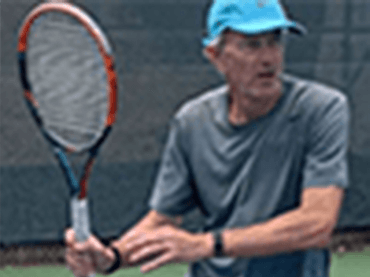Dealing with acid reflux wasn't new to Jeff Lyle. He'd controlled it with medicine for years. But at age 59, he began having episodes of vomiting.
An endoscopy revealed that constant acid irritation had damaged the lining of his esophagus, a condition known as Barrett's esophagus. A biopsy later found cancer cells in the tissue that lines the lower part of his esophagus where it meets the stomach.
The southern California resident went through a series of ablation procedures that used radiofrequency to burn off the tumors. But they kept growing back.
At this point, Jeff had two options.
He could wait and continue with regular endoscopies to check the cancerous growths — and risk having the cancer spread beyond his esophagus. Or he could have surgery to remove his esophagus.
“It was pretty scary. I realized surgery was my best option. But I worried about my quality of life afterward," says Jeff, married with two grown daughters. “I knew everything depended on finding the right surgeon."
The Path to UPMC's Esophageal and Lung Surgery Institute
Jeff turned to a friend, a local surgeon whose own father had died from esophageal cancer. He urged Jeff to go ahead and find a surgeon with expertise in performing the complex surgery.
“He advised me not to limit where I looked," says Jeff.
He searched for the best treatment and most experienced doctors in the nation.
Jeff visited a handful of surgeons across the country, including Pittsburgh where he met the UPMC thoracic surgery team.
A relative of Jeff's family friend — who also had surgery at the ELSI and could resume running marathons — suggested UPMC.
Being able to stay active was vital to Jeff. He works out at the gym nearly every day, plays tennis a few times a week, and golfs year-round.
Jeff traveled to Pittsburgh in February 2019 and spent nearly an hour talking to the team at UPMC Hillman Cancer Center.
“I never felt rushed. The physician was interested, engaged, and committed to helping me," says Jeff. “He was well versed in my medical history and made me feel sure he was all about what's best for the patient. It was important for me to feel confident and relaxed. I knew before our meeting was over that surgery was the best option — and UPMC was the place to do it."
The Solution: Robotic Esophagectomy
On April 24, 2019, Jeff underwent esophagectomy surgery at UPMC Shadyside.
Since his doctor used robot-assisted technology to carry out the complex procedure, he didn't need to make a large open incision. He removed most of Jeff's esophagus, then used part of his stomach to create a new esophagus for food to pass.
Soon after surgery, a nutritionist met with Jeff to review his diet. They talked about things he should avoid like carbonated drinks, ice cream, and thick cuts of meat.
Jeff also learned about eating smaller but more frequent meals and sleeping at an angle to help with digestion.
Discharged just one week after surgery, Jeff spent another three weeks in Pittsburgh for follow-up visits and scans. He then went to his mom's house in New Jersey for two weeks to heal before flying home to Del Mar, Calif.
The Results: Back to His Active Lifestyle
Two months after his surgery, Jeff was back at the gym, on the tennis court, and on the golf course.
“It was the best-case scenario," says Jeff. “I'm active like I wanted to be and the impact on my life was small. I just had to adapt."
Jeff, now 62, never needed radiation or chemo and remains cancer-free. He recently came back to Pittsburgh for his one-year checkup and got a clean bill of health.
“I feel like the luckiest person in the world. Coming to Pittsburgh and UPMC was the best decision I could have made," says Jeff. “Everyone there was so wonderful. I'm just so happy I ended up there."

















